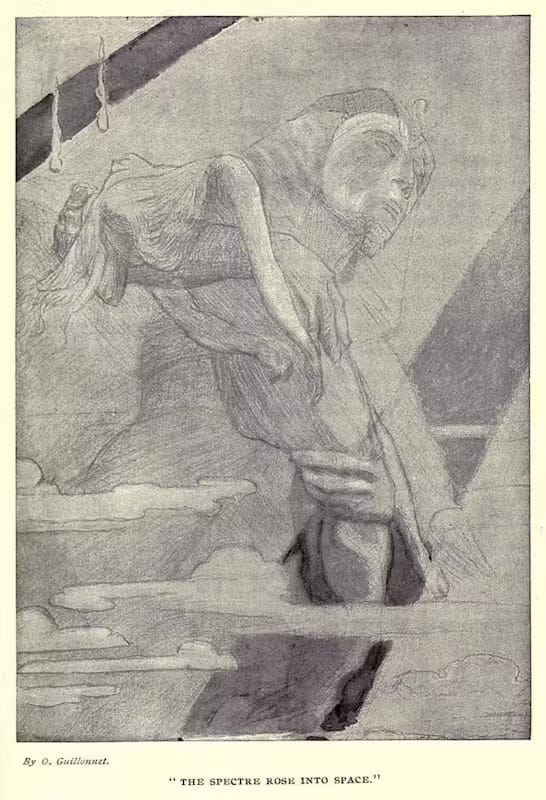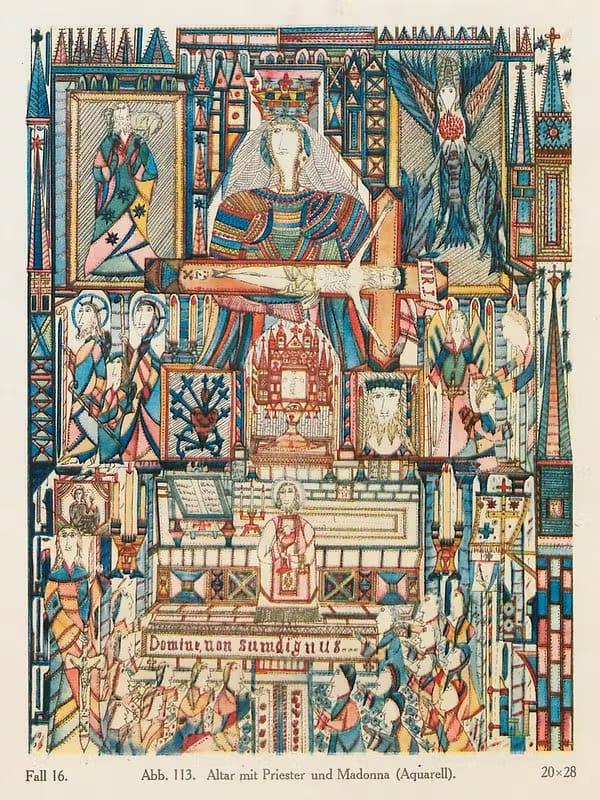Comment Sections are Bad For You
How you are getting robbed of your agency

Comment sections are bad for you. In this essay — or list of grievances, really — I will go over why comment sections are bad for everyone.
I won’t go into the cliche, expectable arguments of mental health or online bullying or trolling — instead I will be presenting reasons from a perspective of why it is rational that you should distrust comment sections, no matter what side of the fence of creator or consumer you are on.
The Commenter
Let’s start by looking at the commenter themselves. A comment section is composed entirely of this class of people, so how is it possible that they could they be getting short changed? Well…
You are Unconsciously Influenced By the Comment Section to Like/Dislike Something
The comment section colors your view, clouding your judgement and not allowing you to form your own opinion of a thing. Over time this decreases your ability to trust your own tastes, and you slowly morph into a parrot of ideas you’ve heard elsewhere. You’ll probably end up saying something like “skibidi” or “sigma” in public, as if everyone else is also in on the joke. They aren’t. Have you ever stopped liking a band because your friends at school didn’t think they were cool? That felt bad then, right? So why the hell would you let a bunch of strangers do that to you, multiple times a day?
Platforms are Using You
You aren’t getting paid to comment. Platforms are using you for free content. Their site looks more popular because you took time out of your day to write words under a post. Sites like Reddit are built off the backs of millions of strangers discussing their niche hobbies over many years, but Reddit itself keeps the revenue. You can keep your “updoots”, I suppose.
You Will Be Stuck With Your Anger
When you get into a squabble online, there are no mediators, and there is no resolution. You will likely attempt to write something witty, or go for an ad hominem attack, or point out a typo in their comment/post, but if they don’t read it, you get stuck with the bag. The anger sits with you, festering, all day — and for what purpose? So you can take it out on others in your real life? So you can think of a “better comeback you should have written” hours later when you should be sleeping?
Parasocial Relationships Rob You of Real Ones, or, Comment Sections are not Communities
Community success stories on the Internet are highly anecdotal, and these stories are often just marketing used by a platform to point out how unique and cool they are to potential new creators (you’re a YouTuber, Harry). An online community should be at the bottom of your priority list of communities you need to take care of. A community sees you as an entire person, and you see them as entire people too, not just as a username. A community has clearly delineated roles, which give people a niche to fulfill. A comment section is at most a loose affiliation with familiar names appearing now and then.
You Exist, You Don’t Need to Prove It to Me
On the Internet, one must be active to “exist”. [1] This is simply the case in a digital medium. But here’s something cool. It’s okay to lurk. If you’re breathing and you’re reading, that’s enough. You don’t need to push yourself to share a take. In fact, if you have enough energy to be productive on the Internet, instead of wasting your valuable and limited mortal lifespan energy commenting, maybe you should consider creating your own body of work. In which case, the next section will be for you.
The Creator
You got into the game of making stuff (and at least being courageous enough to publish it) because you believed in your own vision. If you make something for Internet strangers, it is a bad thing to spend time in your post’s comment sections for a litany of reasons. Why? Well…
There Are Only So Many Hours In A Day
By spending time in the comment sections of your past work, appealing to strangers, you aren’t making new work. Stop it. Go work on your next thing.
Play Stupid Games, Win Stupid Prizes
As a creator, it’s tempting to play the game that has the most immediate social reward. The top of the feed, Reddit gold, a viral Twitter post, yada yada yada. These short term wins will be gone the next day, when something else will be the top news. This focus leads creators down a popularity contest route, and popularity is often a showmanship contest wrapped in a fuckton of personal insecurities. Focus on the body of your work in its entirety. What is the healthiest thing you can do for the long term existence of your work? [2]
Likes and Dislikes Were Created to Help Advertisers, Now They’re Your Emotional Problem
The Like button (originally the ‘Awesome’ button) at Facebook was created to help advertisers easily track trends across the web. These were made for the platform to have better recommendation algorithms to keep consumer attention longer. Unfortunately, somewhere along the way, they became how we status-seeking living organisms validate our self-worth. Reminder: a like/upvote/dislike/downvote is not a judgement of your work, and much less your self-worth as a person. People might like/dislike a video because it's a bandwagon thing to do, or because they want to sort your work into a lower star category, like a seedy hotel. Also see: mob mentality and ontological peer pressure in a Black mirror-esque social ranking system.
Your Art Will Be Worse Because You Will Be Addicted to Past Results
If you spend too much time in comment sections, you will make art to please an invisible person, a “persona”. This is quite possibly the worst thing you can do for your art. (The exception to this is commissioned work, which I discuss below). If people resonate with your work, great. If they don't, great. Make it anyway. Don’t obsess over someone else’s obsessions.
Comment Sections Don’t Align With Your Responsibilities
As a creator, it is your responsibility to create the best thing you can within your medium. Your art is fragile, and a comment section is filled entirely with people who by definition have different incentive structures than you. The principal agent problem is already devastating at companies with people who at least in theory share a goal and the employees are getting paid. For comment sections the principal agent problem is way worse. A comment section is a bunch of strangers, and its basically RNG if they will be hostile or supportive of your work. These people both aren’t getting paid and they don’t work for you. So, their incentive is not to make your art better, but to say something that benefits them. In fact, let’s dive deeper into the real loser of comment sections, the art itself.
The Art
Comment sections mean we as a society get worse art. Whether you make it or just consume it, this section alone should be reason enough to step away from comment sections. We all deserve better art.
Feedback is only Useful if it is a Loop
Internet comment sections are generally transactional, or one-off. If your post goes viral, the same people who made a scathing or insightful comment won’t ever return to see your amendments to your argument. They are there as a one time only deal, before they move on to the next post. If you can’t iterate on feedback, it is just noise.
Taste Takes Time to Develop
Commenting is an immediate act. It is an input text box and a submit button. This immediacy overshadows the sapling that is some people’s art — which could take years or even decades to develop. There are some very talented people out there who never hit their stride because a comment killed their creative energy before they left the starting gate. A sharp wind that cut out the candle. Shame.
Most Comments are Bad Critique
There is a reason there is a difference between Roger Egbert, a critic so good, he actually has a statue, and a comment from @xXMrFuckmeister420Xx. A good critique takes the greater world context itself into account, and the state of the medium it is made in. A good critic is willing to put their own reputation on the line to make a critical analysis [3]. A good critique is not a ratio, or a dunk, or a witticism to cut off an art piece at its ankles.
A Better Path
If comment sections were to go away, it does not necessarily follow that the Internet would become a quiet place. Instead, it would allow us to entertain better options, including…
Earned Media
If people are willing to share your work under their name, that means they are willing to put their own skin in the game. The footnotes below where I reference authors count as earned media for them. Earned media is using another piece of work as a scaffold to make something new. Earned media is good. Remixing is good. (Just cite your sources, please).
Pay For It
Making your audience put their money where their mouth is a valuable signal that can’t be replicated by stars or thumbs up. Money costs people real time and skill to get, so to spend it on your work is a good sign. And indeed, I think we should normalize people being able to stop paying creators too. It is the right of the creator to change, and the right of the follower to stop following. Sometimes it’s best to say goodbye.
Craft is King
On the topic of income, if people are paying you for your work, you need to make it clear whether they are performing patronage or commission. Commission is consulting work, it's the desire for a specific piece of media to exist, and as such, means leveraging your skill or craft to make something specific. Patronage is an investment in the livelihood of a creator. It is the equivalent of buying a train ticket to wherever, and enjoying the ride. You don’t get to control the narrative, but you keep the engine roaring.
Friction
If you must allow for comments, make it difficult. Make people jump through a few hoops to reach you. The friction will weed out those who only had something to say out of convenience. A good way to do this is Office Hours, and being unreachable outside of them.
Don’t Visit the Comments Until You’ve Written Down Your Own Opinion
If you are consuming a work of art, open a notes app on your phone, or a pocket journal first. Write down your unadulterated thoughts about what you just consumed. It is important to externalize these thoughts so you can’t re-neg on them when a comment shifts your view. Don’t let a comment section rob you of your agency.
Do (Good) Research
Understand the world around a thing before you point out your perspective about the thing you see. There is so much more behind the door, if you are only willing to look. Good research means finding reliable sources, and enjoying the slow and steady process of having your mind expanded. This generally involves a more intentional diet of primary and well cited secondary sources.
Conclusion
There are many more flavors to the argument that I’m making here, but the core is this: comment sections rob creators and commenters of their agency. And if you are familiar with the categorical imperative, you will know why this is a bad thing.
In addition, the art itself mutates into the whims of a list of usernames and text, upvotes/downvotes and stars. The person, the technique, the story, is lost in the melee.
The only winners of comment sections are the platforms they are hosted on. Everyone else loses. There is a reason all social platforms have some kind of comment section. But just because you want to use their platform, it doesn’t mean you have to play their game.
I hope this was helpful! And I won’t be seeing you in the comment section. :)
[1] - Trick Mirror: Reflections on Self-Delusion, Jia Tolentino
[2] - The Creative Act: A Way of Being, Rick Rubin
[3] - The Death of the Artist, William Deresiewicz




